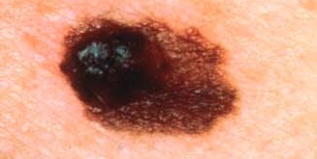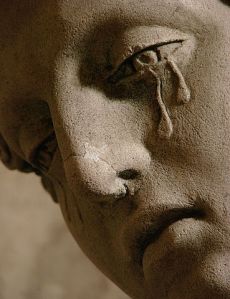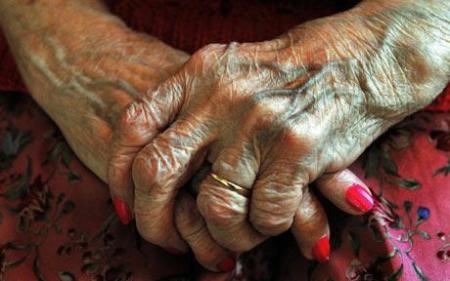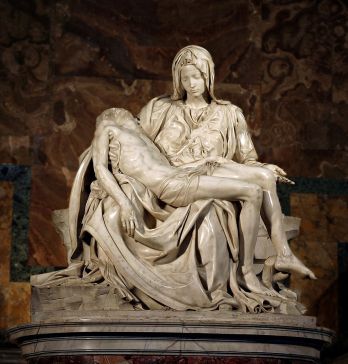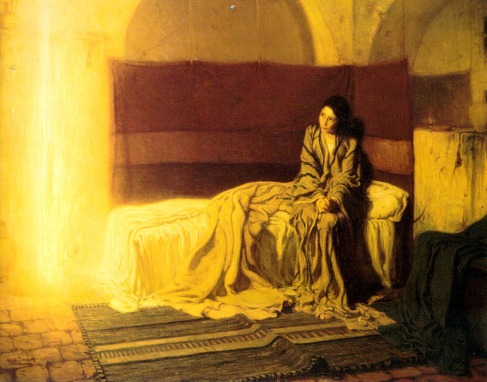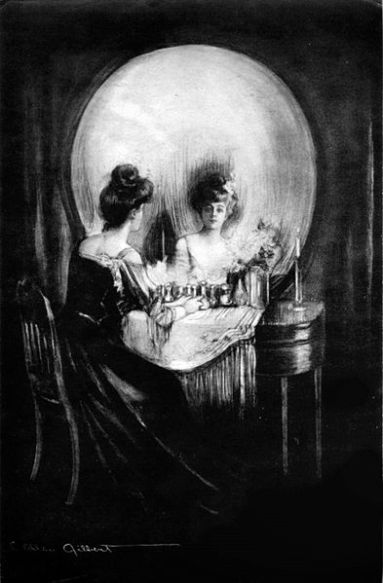An Ode to a Mentor
Earlier this year, an important mentor in my life suffered a stroke. This poem is my reflection on what that event meant to me. It is filled with allusions to maxims he coined, poems he quoted, and classical references he inspired in my imagination. Enjoy.
………………..
“An Ode to a Mentor”
You told us to never worry alone,
And always to listen to the Voice.
But then we all were struck prone:
Despair alone could rejoice.
You told us not to compare our insides
To someone else’s outsides.
But our insides relied thus:
On you beside us,
To guard and guide us;
Your slim suited stride was
Powerful and prideless.
But then, we, like Zachariah of old,
Were struck dumb by the news untold.
Will we see again his dance of joy?
Like Baptist John, the leaping boy?
“He must increase, I must decrease,”
Thus his acts had spoken their piece:
Wisdom given before the strike,
For both sheep and shepherd alike.
And so.
And so we too will be a guest house.
For each new visitor
Whether riotous villager
Or pilf’ring pillager
Or Grand Inquisitor.
In this Odyssey of our theodicy,
We will welcome the sirens’ scream.
We’ll be grateful for whoever comes,
Even Lazarus with the crumbs.
Because he too has been sent
As a guide from beyond.
And so we will never worry alone.
His same spirit in us has grown!
We will always have the Voice.
We now will make the choice:
We will not die an unlived life
We will not live in fear of falling or catching fire.
Because the fire is light–God’s warm delight.
El Hombre de la Mancha
A poem while on a bus, doing some medical work in Honduras. Still needs some polishing…
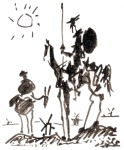
“El Hombre de la Mancha”
Jan 30, 2014
We’re packed like bananas–
The bus curtains flapping like plantain leaves, thin and hot in the breeze,
Honduran music crackling loud from someone’s ancient cell phone
A few seats back.
You’re sitting just across the aisle from me,
Close enough to tap your elbow into my ribs–
If we were friends who made jokes,
Or if there weren’t several bodies standing stacked in the aisle between us.
We make an odd pair riding together:
I, tall and skinny;
You, short and stout.
I, with a pen in my hand like a lance;
You, with a cap to shield your graying head.
But what is that?
…On the tip of your nose
A spot
.
To some, perhaps just an ink stain or a birthmark
But to any doctor, it’s a melanoma.
A black tick the size of a penny,
A monster engorged on your life blood.
It’s cancer–“crab-like”–doomed to crawl
to your bones
to your liver
to your brain.
The only hope of cure is radical resection–
No easy feat
In a country
Where most towns have no doctors
Where most cities have no specialists
…Unless you’re rich.
Today, I turned 30. I went to a beach.
Today, you received a question whispered from a gringo doctor as you were leaving the bus to walk home to your family,
Asking if the little spot on your nose was growing.
And when you said, “sí,”
You were told that you likely have cancer…
That you should see a doctor immediately…
You, with your nod and “gracias” and handshake,
You have driven a needle into my heart…
The bleeding will stop, but a scar will remain.
Hours later, as the moon, sharp as a sickle, rises over the Honduran hills,
And the bus plods onward like sick cow
I’m trying to use my rosary beads
To wash away the feeling that I should have done more
Or to plead to God
That a warning from a stranger
Might have saved a good man’s life.
-T.H.
[Please pray for him. I’ll try to write more about Honduras when I find some time.]
Those Tragedies (A Sonnet)
……….
Written recently on the train, with deep sympathy for friends who have recently suffered tragedy.
……….
Those Tragedies
[A Sonnet]
Those tragedies grave that to some befall–
Their home destroyed entire by flood or fumes
Their child lost in birth or whilst in the womb–
Are trials suffered by few but feared by all.
And when such gates of darkness open wide,
Our blood runs black, and our hearts ask, “God, why?”
But Job fails when he such probing persists;
And Alyosha can only give a kiss.
When words or time cannot grave loss restore
Let’s grasp our Lady’s hand all the more
To hear ‘Eloi, Eloi’ shrieked above,
And trust our lives are shaped by deepest Love
That will transform anew what we treasure most
Raised by the Father, Son, and Holy Ghost.
-T.H.
Loving in Latitude
I recently witnessed an event on the Boston metro. I took some notes, and I’ve turned it into a poem. This is my first attempt at free verse, so no promises that it’s any good.
“Loving in Latitude”
Her eyes plow towards the right, then swing
Left.
Then glide again fitfully right, only to
Flit left.
But all the time, making steady
Progress
Downward.
Like some pair of unassuming bumble bees
Or hummingbirds
Supping their way down the garden rows.
But these wings
Beat far swifter than eighty times every second–
As innumerable synapses fire, and ions are
Shuffled
In that magical transformation whereby carbon on a page
Becomes a word,
a sentence,
a thought,
a pattern.
Matter moves mind.
And the soul is lifted,
Even more than some youtoobian
Double rainbow.
“Loving in Latitude”–
It’s printed on the book’s blue cover.
A cover that protects the still freshly white leaves,
A cover that is grasped
By ringless, slender white fingers
Of a strawberry blonde figure
With cesious hummingbird eyes,
A scarlet pea coat,
Indigo jeans,
And a pair of burnt umber boots.
A violet JanSport backpack lies at her feet,
With the small ribbon, pink as a crab,
Clasped tight to the pocket
By a safety pin,
And a small silver cross
Pierced nearby.
Those bees continue their typewriter path
Until
A man steps onto the metro car
Announcing
Like a loon
His current flight and dubious plight.
That herd of glazed gazing eyes, momentarily distracted
From their own mindless zigzag stares at the spaces outside
Turn,
Then,
Giving a condescending somersault,
Resume their thoughtless course.
So too the flock of young hens, pecking away at their iPhones
Stops for but a moment,
To return to their Angry Birds.
But the bumblebee in red,
Unzips the violet
And brings out her honey nut granola bar–
a study snack, no doubt–
And hands it to the loon
With a smile.
Just then
As the lurching, faded iron metro cars screech to my
stop
I step out into the barren coldness
Knowing I will never see the hummingbird again
But wondering if I too
Can learn to
Love in Latitude.
An Ancient Beauty
“Late have I loved you, O Beauty ever ancient, ever new” -St Augustine, Confessions
Do we take the time to appreciate the beauty and charm of the elderly? I’ll spare everyone the latest stories from the hospital and instead give an anecdote from a recent flight to Texas over Christmas break.
As I rolled down the aisle, counting down to my row… 15, 16, 17, 18 — there in 18D was an 80-ish-year-old lady. She was in the aisle seat, and I needed to get to the window. When she saw this, she smiled, propped her black cane on the outside armrest, and then gracefully swung both of her little tan-stocking-ed legs around the armrest. Her dentured teeth grinned from behind her bright-red-lipsticked lips. On the flight, she soon dozed off–what a blessed nap–and I couldn’t help but notice her finely pencil-accentuated eyebrows, her worn-with-age-but-still-beautiful wedding band, and her festive Christmas-Tree ring. She had a red sweater and one of those brass ‘jingle bells’ hung on a string around her neck. Her vein-accentuated, leathery hands may not have had the softness or musculature they once did, but they bespoke a life given for others. Indeed, she reminded me of those dozens of nameless old ladies who volunteer in our hospitals — smiling as people like me whisk by. Or I think of the countless elderly women who come dutifully to daily Mass, who place flowers near the altar, who begin the rosary in soft but steady voices.
Then I thought to myself: “The Kingdom of God is of such as these.” When our flight landed, she said the first and last words I heard from her, revealing her Texas drawl. As I helped bring her bag down from the overhead bin, a simple, “Well thank you, kind sir.”
No, thank YOU, ma’am.
A Winter’s Tale: Pediatric Poetry
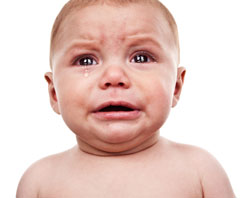
………………………………………………………………..
Another little stab at poetry…
………………………………………………………………
“This time of year thou mayst in babes behold”
A Pediatric Resident’s Pseudo-Sonnet
(cf. Shakespeare‘s Sonnet LXXIII)
This time of year thou mayst in babes behold
The mucus yellow, white, or clear that drips
Upon each little nostril and each lip
That wail against that vile disease called “cold.”
But ask me not just to dole out the ‘script,
Unless membrane doth bulge or rales are heard.
Nor shout for an IV if juice is sipped;
Nor weepest thou if the nebs are deferred.
Recall “Do no harm”: some meds aren’t good for you.
But ‘roids I’ll use for asthma or for croup,
And Tamiflu if under two with flu,
And for RSV it’s time, nebs, and O2.
Remember that we’re in this together,
And your child’s health is our top endeavor.
We know it’s hard and you might not admire us,
But we’re oft pleased when it’s “only a virus.”
That’s why our training lasts forever:
To know when it’s bad, or just the weather.
-t.h.
Losing a Friend to Drugs
I recently heard that an old friend passed away. He was his parents’ only child: please pray for him and his family. Who can imagine the grief of a mother or father or grandmother who survive to see their child die in their prime? The last words I have from him were in a phone text (we invited him to come out to eat a few days before, but he and a couple of others could not come):
“I’m sorry I’ll miss you boys. All my love!”
A few days later, I replied to his text to invite him to a different dinner party… only to learn that he had passed away. We will miss you and your loving heart sorely, my friend. Your death is a shock that my mind can still scarcely accept as real. Κύριε, ἐλέησον. God willing, we will meet again in those realms of Eternal Joy, where “He will wipe every tear from their eyes. There will be no more death or mourning or crying or pain, for the old order of things has passed away” (Rev 21.4).
Since before the time of Job, the human mind has attempted to make sense of tragedy and suffering. Rather than write on the Christian approach to theodicy, however, I (being a neophyte physician) would prefer to discuss how these sorts of tragic deaths could be avoided in the first place. Even if I knew the details of my friend’s death, I certainly would not publish them. But suffice it to say that he had struggled with substance abuse.
In our age group of 25-34, drug use (whether prescription medication abuse/overdose, or illicit drug use) is THE leading cause of death. In particular, death from the abuse of prescription narcotics is quickly becoming an epidemic in the USA: the death rate has more than tripled since 1999. Currently 100 people die daily from drug overdoses. Hence the movement to get the prescription nasal spray Narcan (which can reverse narcotic overdose) distributed into the hands of non-medical friends and family of narcotic abusers. If you are close to someone with substance abuse problems, please seek out the proper resources for them (whether Narcan nearby, rehab, etc.). Once drugs are in a person’s brain, it often becomes extremely difficult for that person to quit or to make responsible decisions. Recent studies with functional MRI scans demonstrate how drugs make structural and functional changes in those areas of the brain responsible for impulse control, motivation, etc. In short, the brain is “re-wired” and does not function as it should. As one neurologist taught us in medical school, drugs effectively “spoil” the brain by giving a strong reward signal without any reason/challenge for this reward.
When the “drug overdose” is rolled into the ER, you might see people rolling their eyes. But those of us fortunate enough not to be struggling with addictions are in no place to judge. Where would you or I be if we grew up in the street, where this was our only “out”? Or if we had chronic pain from a car accident, and this was apparently the only thing that stopped the pain? (As an aside, narcotics certainly do have a place for pain; but so do non-steroidal drugs, physical therapy, acupuncture, etc.) Whatever circumstances brought a person to use the drugs, the outcome is similarly dangerous: once the drugs are in their system, their reasoning is muddled. If you know someone suffering from mental illness, you can imagine what neurochemical muddling might look like.
We all need to educate ourselves about this growing overdose epidemic. But horrible tragedies like this don’t just make me sad, they infuriate me. For all the Hollywood stars who die annually from drug overdoses, you think the message would get out there: drugs aren’t cool. Cocaine or heroin or PCP or crystal meth don’t promote any societal or personal goods. They don’t further any important revolution or rebellion. They don’t make their users any more attractive, talented, or charitable. Instead, they are a selfish attempt at personal pleasure; they destroy health, careers, families, and societies. They can lead to heart attacks, violence, psychosis, and the spread of Hepatitis and HIV. The drug demand in the U.S. fuels the cartels that perpetrate the countless deaths and kidnappings in Mexico–of teachers, mothers, children. You want to see the real face of drugs? It isn’t the back parking lot, where the “cool kids” hang out. It’s the homeless shelter; it’s the hospital bed; it’s the cemetery. It’s the decapitated teacher in Mexico, or the weeping mother in the U.S. In several cities, there has been a movement to show online the ‘Faces of Meth‘ before and after a few years of methamphetamine use–shocking images. So sad that something as harmless as the Ephedra plant or as beautiful as the red Poppy, could–in the hands of a fallen humanity–cause so much harm.
We humans are broken and fallible enough as it is–the last thing we need is something to muddle things worse with drugs. I just wish that the maxim “Just say no to drugs” didn’t sound so trite, or that the slogan “Drugs, sex, and rock n’ roll” didn’t still have its popular appeal.
In the least, I hope you, the reader, is a little more informed of some of the dangers of drugs, particularly prescription pain medicines. I wish it were an easy problem to fix, or that we didn’t need these narcotic medicines (or benzodiazepines or amphetamines or other potentially harmful drugs) so badly for disease.
If you know anyone at risk of abuse, please make sure they get help. They may well need it.
Kyrie, eleison.
Requiescat in pace.
Links:
The CDC on Prescription Painkiller Overdoses
Sonnet and Reflection on Mary
Shall I Compare Thee to a Summer Rose?
Evoking W. Shakespeare’s “Sonnet 18”
Shall I compare thee to a summer rose?
Nay, thou art more fair, for thy blushing face,
Pinked at Gabriel’s “Hail, full of grace,”
Did not wilt when it tasted Beth’lem’s snow,
Abandoned. And thou hast no thorns, save those
Plucked from thy babe’s bloodied brows. This thy bud
No pruning lacked, and yet his sacred blood
Dropped petal-like when, shorn with steel, your hearts froze.
Thou flower ne’er deflowered, give us thy fruit–
Not Eden’s folly, but Jesse’s saving shoot.
-T.H.
“The Annunciation,” by Henry Ossawa Tanner, the first African American artist to win international acclaim.
For some of us Catholics, the question of Mary can be a source of embarrassment. We have to clarify, particularly to our Protestant brothers, that no, we do not worship Mary. That yes, we acknowledge she is only human. That yes, that ultimately it is God/Jesus who saves.
But, the more I have come in contact with mothers (as both a pediatrician and uncle), the more I have come to respect Mary. We cannot underestimate the significance of motherhood. One can recall the alleged Jesuit maxim, “Give me a child for seven years, and I will give you a man” … or is the purported quotation from Vladimir Lenin: “Give me a child for the first five years of his life, and he will be mine forever.” Babies take in more then we give them credit for. As do fetuses: recent studies are showing how prenatal events can influence humans long term (e.g. how stress or smoking in a pregnant woman can affect the child for the rest of his/her life, e.g. increasing obesity).
So it stands to reason that we should care about (probably) the most influential person in the life of Jesus–who is himself the center of faith for 2 billion persons, and undoubtedly the most influential person in the history of the Western world.
I do not wish to give a lengthy discourse as to why Mary is so amazing. Plenty of erudite articles have addressed this.
Suffice a few points for consideration:
-Mary watched her own son’s tortuous death. That fact alone is worthy of all the reflection, music, and artwork Mary has received. Simeon’s words were something of an understatement: “And your own heart a sword will pierce” (Lk 2:35).
-Despite the occasional mockery of Mary by pop figures such as Madonna, it is hard to criticize this impoverished Jewish woman. Really. What kind of person insults Mary? (Whereas it seems that just about every other adult in the history of the world has at least one major critic).
-Like her son, Mary endured significant physical hardship and poverty. What kind of mom gives birth in a stable, and puts her baby in a place where cows eat? A hero for the poor worldwide.
-Mary shows a selfless sort of abandon/love for others. Think of how she rushed to visit her pregnant cousin Elizabeth (Lk 1:39), a journey of some 100 miles, precisely when she was starting her own pregnancy (and liable to be criticized for the same).
-She stated that “all generations will call me blessed.” (Lk 1:48). So Christians should call her blessed.
-Per an old Buddhist professor of mine, early feminist gains have a lot to do with the Biblical/early Christian elevation of Mary. The status of women was heightened thanks to Mary (and to Jesus, of course). Think of the early Christian virgins who refused to be married, who could do with their money as they pleased (hard to find something similar in the Roman Empire prior).
-Per the Biblical account, Mary freely surrendered her will, her entire life, to God. How many of us, if told that we had to set our own plans aside to do something very different, something requiring great sacrifice… how many of us would just say, “Behold the handmaid of the Lord. Do as you say.” (Lk 1:38)?
-Mary’s humility is humbling. She exemplifies the sort of attitude of ‘turning the other cheek’ which her Son later preached. She never complains, nor does she ever claim any credit for her crucial role in the history of the world. The entire first half of the ‘Hail Mary’ (which is purely Biblical), points to how God is working wonders in Mary’s life, rather than pointing to Mary’s own great attributes. Hail, full of grace (God has favored her, filled her with grace), the Lord is with thee (He has decided to abide with thee); blessed art thou amongst women (God blesses thee), and blessed is the fruit of thy womb (Jesus is blessed). The “Magnificat” has much more of the same.
-Jesus said, “Behold, your mother” to the “beloved disciple” (Jn 19:26)… an act long interpreted as giving Mary as the mother of all disciples (i.e., as mother of all Christians, of the whole church). Furthermore, this act of Jesus’ — to entrust his mother’s care to a non-relative, proves that Jesus did not have any living blood siblings (which suggests that Mary did not have any children after Jesus). If he did, then it would have been well-nigh criminal to disown one’s mother outside of one’s own family.
–Numerous parallels have been discussed, whether by ancient Christians or more recent scholars, between New Testament accounts of Mary and the Old Testament (Eve, the Ark of the Covenant, etc.). So there actually is a good deal about Mary in the Bible.
Well, that’s all I have for now.
Memento mori
“Death, Be Thou Proud”
(A response to John Donne’s “Holy Sonnet X“)
Death, be thou proud, for some have called thee
Mighty and dreadful, but thou art demure;
For, we, thinking ourselves safe and secure,
Die. Suddenly. We fancy ourselves free
Of the one great known, the curse of the tree,
While with medical marvels we insure
That thy advances seem but premature,
That when the bell tolls, it tolls not for me.
We, slaves to pleasures and fancies and tasks,
Have long forgotten the lore long since passed,
To live each day as t’were our very last.
When science faileth, we all drop aghast.
Without Hope, men of thee are terrified,
For in thy embrace all is clarified.
-T.H.
“All Is Vanity”, by C.A. Gilbert (1892)
A few days ago, I took the road less traveled back home from a meeting at the Brigham and Women’s Hospital. Backtracking on my bike, I wanted to see if I could find Mass at the Redemptorists’ beautiful stone ‘Mission Church‘ up the road (with its Shrine to Our Lady of Perpetual Help, bedecked with containers of dozens of crutches of people who have thought themselves healed by Mary’s prayerful intercession). Instead, I walked into the end of a funeral Mass, just in time to hear the last eulogies. Two things struck me about this service: first of all, the final eulogy itself, which was actually a beautiful a capella performance of “Parting Glass” by the brother-in-law of the deceased elderly woman. I last heard this song at my sister’s wedding, when all the rugby friends of my brother-in-law sang farewell to the newly-wedded couple. A good deal more classy than a farewell shout I heard at a different wedding more recently (also from a rugby player), when he wished to recall the last words shouted at Bobby Boucher in Water Boy. Ahem.
The second memorable aspect of this Irish Catholic funeral was the size of the congregation itself, or rather, the lack thereof. There were perhaps just twenty or so souls in attendance. Had the rest of her family and friends already died? Or had she been largely forgotten by those around her? One must recall with sadness that well over half nursing home residents in the U.S. have no visitors annually.
Perhaps the more alarming phenomenon is our society’s attitude towards death. Less than a century ago, the vast majority of people died at home. Death was very much a part of life. In a world without antibiotics and with few vaccines, even the death of children was common. One need only look at countries in sub-Saharan Africa, with vaccination rates and public health problems not unlike those of earlier America, to see under-five child mortality rates around 10%. Indeed, Louis Pasteur (creator of the first rabies and anthrax vaccines, and an impressively pious Catholic) dedicated his life to try to find a cure for childhood diseases–after three of his five children died (most likely of typhoid). A consequence of the excellent work done by men like Pasteur is a complete shift in our view of death.
In the words of one article in the British Medical Journal (part of the delightfully-titled series Fortnightly Review): “In Europe from the Middle Ages until a century ago there was a simplicity about dying. Aware that the end was approaching, people would take to their sickbeds and preside over the ritual. The family, including children, friends, and neighbours would congregate. The ceremony was public and doctors often complained about overcrowding. Death was not regarded as a frightening event and was accepted as an inevitable and integral part of life. Dramatic changes in attitudes to death have taken place since the mid-nineteenth century. The natural acceptance of a biological reality has been lost and people are now unable to come to terms with their own mortality. One consequence is that death has become institutionalised.”
Thus, even by only 1993, only 23% of people were dying at home. How many of you reading this article have actually witnessed someone die? Certainly, I had not seen someone die until entering medicine–where our sterile white-shrouded hospital walls veil Death from the rest of the world. Death comes to us all… but not really, not now, not here. Death is for when I am much older, when I’ve lived my life, when I’m too decrepit to have any fun anyhow. I recall hearing about a study (sorry, can’t find the exact source) in which people were asked how long they thought they would live: the 30 year-olds said 70, but the 60 year-olds said 80 and the 70 year-olds said 90. Death is dreaded. And how many of us in medicine have encountered patients (or, more commonly, family) who are grasping and gasping for “one more breath”, asking the medical team that we “do everything” for the patient — long after any hope for cure or decent quality of life is possible?
I suspect that the blame is not only on the institutionalization of death and the (often false) promises of medical science, but also on the decline of religious faith. In the absence of real belief in the afterlife (or, worse, in the presence of only a little nagging suspicion that there might be a Hell of sorts, but with unwillingness to investigate further or pitch in with Pascal’s wager), death must seem quite terrifying. But we can put off such uncomfortable issues because they belong only for the elderly, in hospitals. The latest Tweet about the British royals or Lady Gaga seems far more important than questions of mortality.
But all of this seems rather absurd to me. Death is the one inevitable in life. One can recall that the vast majority of humans throughout our long history have spent copious amounts of time, talent, and treasure preparing the dead (and the living) for the afterlife. And what about today? We spend copious amount of money on ventilator support or total parenteral nutrition, or on expensive coffins… but do we feel at all prepared (or willing, or even joyful) to die?
To put it more bluntly, do we feel confident with the real possibility of ‘meeting our Maker’ at any moment?
If not, maybe we should do something. What boggles my mind is that people don’t seem to care. The one question that will actually matter (long after our bones, reputation, and genetic line have disappeared), the one giant elephant (or Grim Reaper) in the closet is being ignored. At least the New Atheists seem to care about the God question, even if their philosophical methods be flawed or their style be vitriolic.
As in many things, our Latino neighbors have much to teach us. Armed with an obvious belief in the afterlife, as well as their strong family ties (which include living with grandma and all her chronic diseases), they actually celebrate their dead. Maybe what we need is a little more of “El Dia de los Muertos” and a little less Black Friday.
Why blog?
A blog? But why? Will you ever have time to write anything? What do you hope to accomplish?
In answer to all of the above: I don’t quite know. Starting a blog was suggested to me long ago by a few friends, and running a blog is what several of my favorite role-models do (and do well). Perhaps my blog will totally flop, and go back from the nothingness from whence it came (like the Balrog before Gandalf, or syphilis before pencillin). Perhaps my posts will be as infrequent and uninteresting as ‘yield’ signs in West Texas. But perhaps I will actually be able to inspire someone to pursue ‘caritas, veritas, or hilaritas.’ Or maybe I’m doing it because it’s just easier to publish some of my previous essays/pieces here, then email them to others (for scholarly or personal reasons).
I don’t know. The entire idea of a blog seems rather egotistical to me. “What makes you so special, that you think people will listen to you? You’ve just got diarrhea of the mouth and constipation of the brain.” But hopefully, if the blog’s focus is something higher than me–something like charity, truth, or light-heartedness–then the endeavor will be worth the wasted digital ink. Anyhow, I’m not holding my breath. Cranial hypoxia is worse than just about anything in medicine, including maggots.
